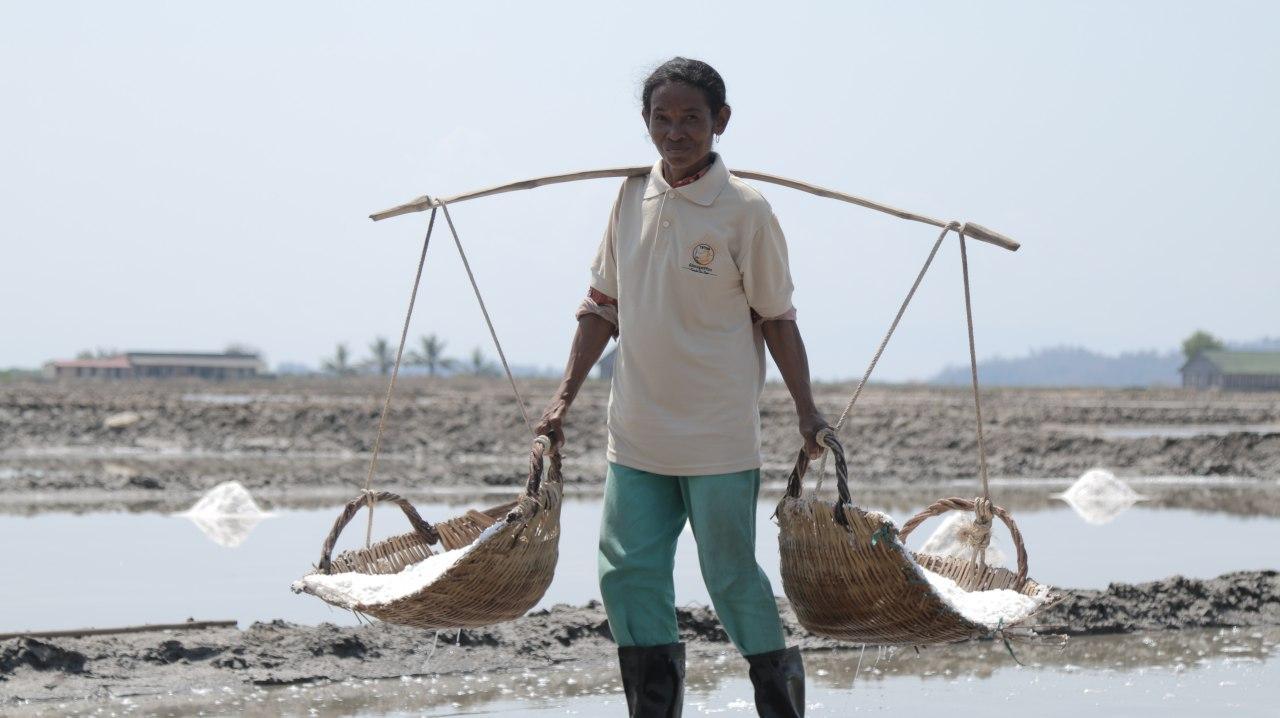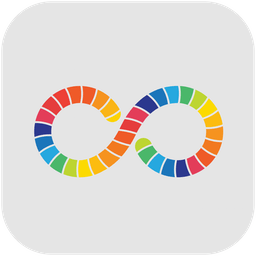
The rasp of a rake across crisp salt crystals holds a soothing familiarity for Thyda Thoung. Growing up helping her dad work the salt fields, she shared his enthusiasm and pride in the harvest from their family farm. And yet, when the time came for her father to retire, there was resistance to Thyda taking the lead. Despite 26% of Small and Medium Enterprises (SMEs) in Cambodia being owned by women,[1] there is still an expectation that a woman will focus on her household responsibilities. A daughter inheriting the family business is far from the norm.
For Thyda, conforming to these gender roles was too restrictive. Breaking with tradition, she decided to forge her own path in the world of business: she took the reins of the family farm and turned it into a social enterprise. “My dad understands my passion for business, but it was hard for my mom,” Thyda explains. “She has quite a conservative view of my role in the family as a daughter, and that was supposed to take priority over work.”
Looking back, Thyda can see that her family’s perspective challenged her to work even harder and ensure her business was successful. But she has felt that lack of a support network at times. Although she has been able to turn to some experienced friends and her dad for advice from time to time, she has not had a mentor to help guide her as she navigates the challenges of running a business.
The company, registered as Thoung Enterprises, still takes a traditional manual approach to sea salt production, a seasonal harvest that is dependent on hot dry weather to allow the salt to crystallise effectively. Sea salt has been a long-standing domestic product in Cambodia, usually produced by small family businesses. But Thyda’s ambitions were set higher than that. Getting to grips with the Good Manufacturing Practices, ISOs and HACCP needed both for production and packaging was a steep learning curve, but when the doors were opened for Cambodian salt to reach the international market in 2017, Thyda made sure her company was ready with export-quality products.

“Set up a business model and make sure you understand every little detail of it, from production to finances to regulations. Then, when challenges arise, you just deal with them one by one.”
Thoung Enterprises now operates with a permanent staff of 20, comprising 60% women, and 40 seasonal labourers. They export high-quality sea salt, including the luxurious Fleur de Sel – the top-layer of sea salt flakes from the salt fields that are collected by hand. As a social enterprise, they take a sustainable approach and ensure that their product not only meets quality and nutritional standards, but those of fair trade and sustainable economy as well. They have been nominated by the Slow Food movement for fulfilling their “Good, Clean and Fair” criteria.
The business is open-minded about technology, using a range of software for operations management, as well as a website and social media accounts for marketing. “We’re prepared to try different technologies, especially if it helps us with innovative production,” says Thyda. She recognises that in today’s world, digital sales can count for a large portion of their income, and she embraces these developments in the business sector. That’s not to say that digitalisation has been easy: some of the software programs available are not well localized, which makes them anything but user-friendly. For areas of her business where she feels she lacks the skills she needs, Thyda’s port of call is online learning platforms. She has already completed courses in e-marketing, and hopes to continue using these platforms to learn about marketing, development and financial management.
Having an established foundation in e-commerce has helped Thoung Enterprises weather the storm of the pandemic, keeping a steady stream of online orders coming in. But, Thyda notes, exports were closed during lockdown, and not all of her usual domestic customers are familiar with the internet. Cambodia’s Internet penetration was less than 60% in January 2020,[2] and although COVID-19 is likely to have pushed that figure higher, Cambodia still lags behind some of its neighbours in this respect.
Securing financial support has been one of the major challenges Thyda has faced in expanding her business, as each funding opportunity comes with its own set of requirements and criteria. Nevertheless, the company has received support from entrepreneur organisations such as Khmer Enterprise and the Young Entrepreneurs Association of Cambodia. They are looking at getting a loan to buy machines for screening, drying and processing the salt prior to packaging, in the next stage of their development.
Thyda’s advice to other women entrepreneurs is to be committed and reach for their dreams. “You need a clear purpose. Set up a business model and make sure you understand every little detail of it, from production to finances to regulations. Then, when challenges arise, you just deal with them one by one.”
Sources:
1 – International Finance Corporation. (2019). Exploring the Opportunities for Women-owned SMEs in Cambodia.
2 – Kemp, S. (2020, February 17). DIGITAL 2020: CAMBODIA [Database], Datareportal.
